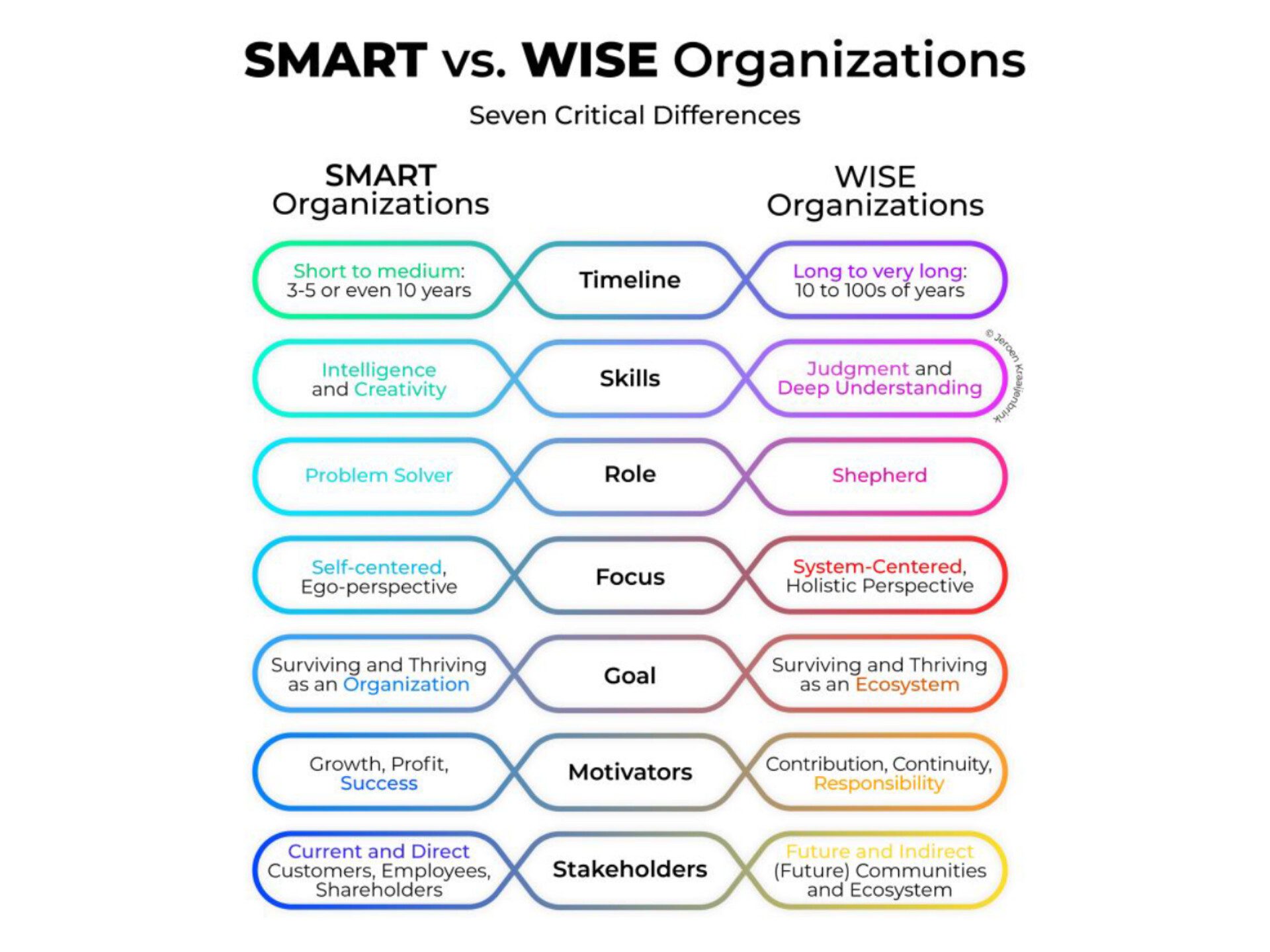Currently Empty: $0
Smart vs Wise organizations seven critical differences

There’s a critical distinction between organizations that are smart and organizations that are wise. These are the seven differences and why they matter.
We already know for a long time that simply working harder isn’t effective. Therefore, we are advised to work smarter, not harder. We should use our intelligence and creativity to come up with smart solutions that may get the work done with less effort, or deliver higher quality work.
It’s time for the next step and move on from smart to wise organizations. The challenges of our world—climate change, polarization, war, to name a few—ask for this.
Moving from smart to wise is not a word game. And it is not simply more of the same. Wise organizations are different. Let’s start with some quick dictionary definitions to see the difference:
SMART
Cambridge: “intelligent, or able to think quickly or intelligently in difficult situations”
Merriam Webster: “having or showing a high degree of mental ability; intelligent, bright”
WISE
Cambridge: “having or showing the ability to make good judgments, based on a deep understanding and experience of life”
Merriam Webster: “characterized by wisdom: marked by deep understanding, keen discernment, and a capacity for sound judgment”
Along the lines of these definitions, we can define and contrast Smart and Wise Organizations as follows:
SMART ORGANIZATIONS
Timeline: short to medium-term; 3-5, perhaps 10 years
Skills: intelligence and creativity
Role: problem solver
Focus: self-centered, ego-perspective
Goal: surviving and thriving as organization
Motivators: growth, profit, success
Stakeholders: current direct stakeholders (customers, employees, shareholders)
WISE ORGANIZATIONS
Timeline: Long to very long-term; 10 to 100s of years
Skills: judgment and deep understanding
Role: shepherd
Focus: system-centered, holistic perspective
Goal: surviving and thriving as ecosystem
Motivators: contribution, continuity, responsibility
Stakeholders: future and indirect stakeholders (community, ecosystem, future generations)
Source: GWFM Research & Study








